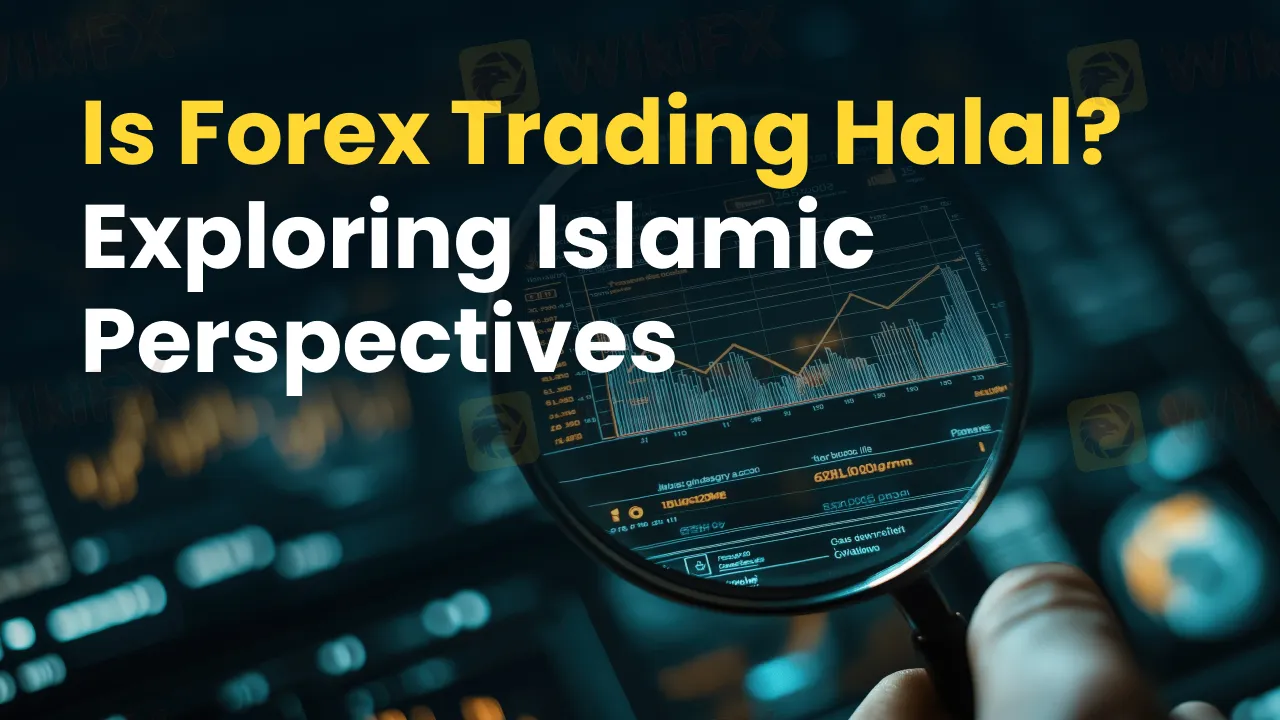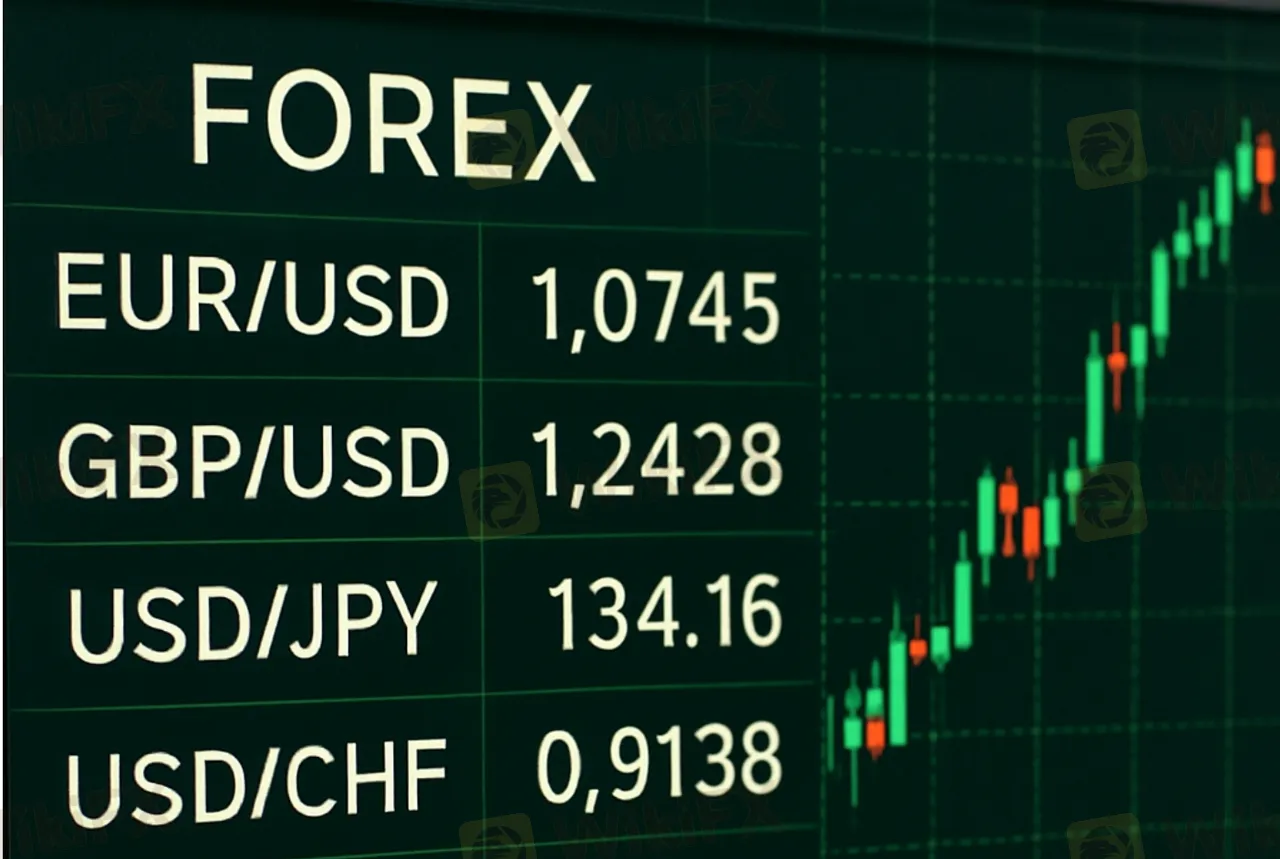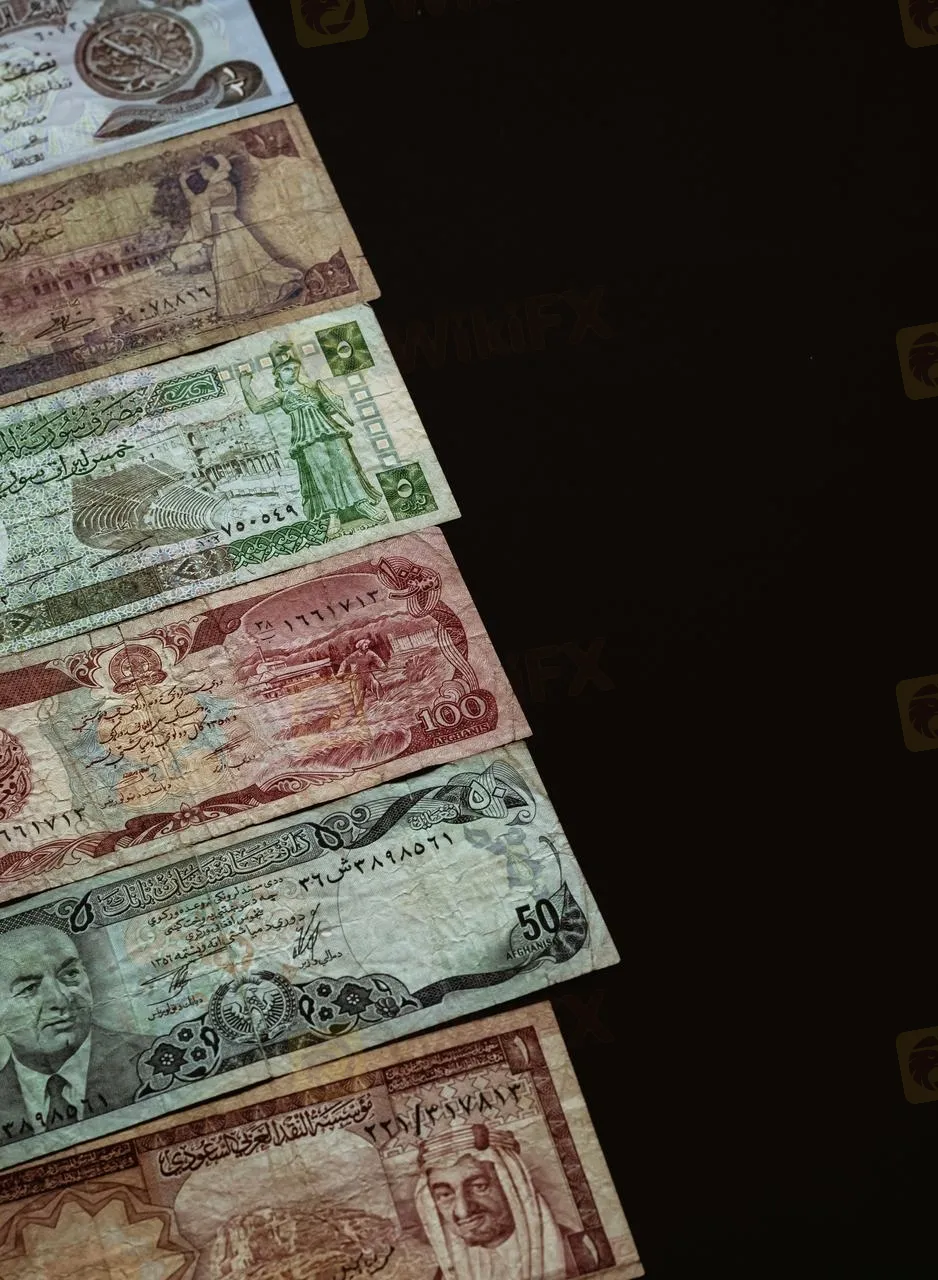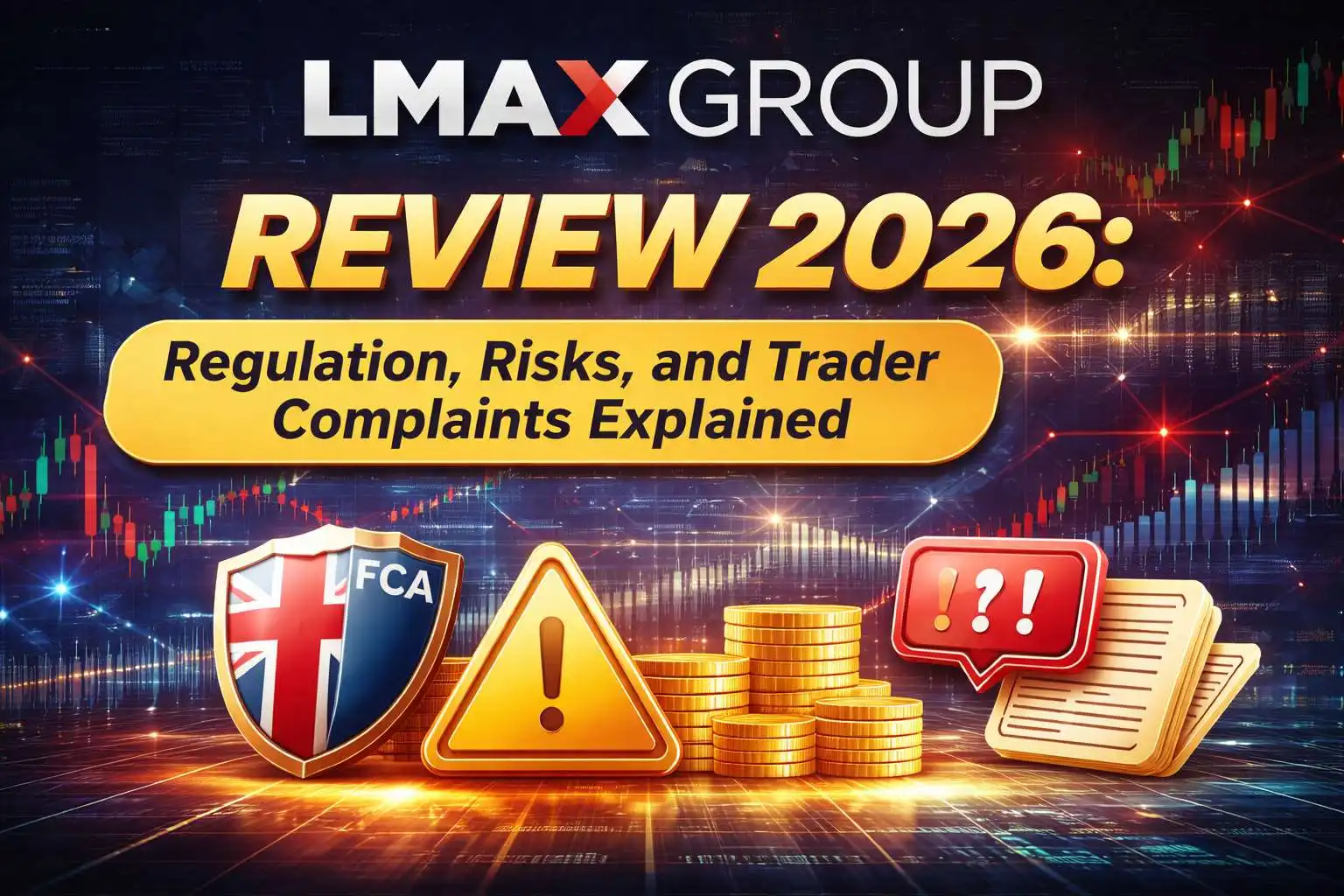UbitMarkets Review 2026: No Regulation, Direct Links to UBIT Coin Scam, and Serious Platform Risks
UbitMarkets review reveals no valid license and direct links to a fraudulent project, raising serious concerns over investor fund safety.
简体中文
繁體中文
English
Pусский
日本語
ภาษาไทย
Tiếng Việt
Bahasa Indonesia
Español
हिन्दी
Filippiiniläinen
Français
Deutsch
Português
Türkçe
한국어
العربية
Abstract: Can faith and finance go hand in hand in the life of a Muslim trader? Can they participate in trading without compromising their beliefs or should they avoid the market altogether? What side should they choose? Let’s examine the forex market through the lens of Islamic tradition and reach a clear conclusion.

Can faith and finance go hand in hand in the life of a Muslim trader? Can they participate in trading without compromising their beliefs or should they avoid the market altogether? What side should they choose? Lets examine the forex market through the lens of Islamic tradition and reach a clear conclusion.
Understanding the Halal Status of Forex Trading
Forex trading is a popular investment method. It involves the exchange of currencies on a global scale. But is forex trading halal in Islam?
This question sparks debate among scholars. Some argue it aligns with Islamic principles. Others see it as haram due to its speculative nature.
Understanding the halal status of forex trading requires exploring Islamic finance principles. These principles emphasize ethical investing and avoiding harm. Key concerns include interest (riba), uncertainty (gharar), and gambling (maysir).
Forex trading can be halal if it avoids these elements. Islamic accounts offer swap-free trading to comply with Sharia law. This allows Muslims to trade without interest.
The role of leverage in forex trading is also debated. Some scholars permit limited leverage if it avoids interest. Others view it as inherently haram.
The halal status of forex trading is not black and white. It depends on individual interpretations of Islamic law. This article will explore these perspectives in detail.
By understanding these principles, Muslims can make informed investment choices. This ensures their trading activities align with their faith.
What Is Forex Trading? An Overview
Forex trading is about buying and selling currencies. It's one of the largest financial markets in the world. Traders aim to profit from changes in exchange rates.
Currencies are traded in pairs, like USD/EUR or GBP/JPY. This means exchanging one currency for another. The market operates 24 hours a day, five days a week.
Trading usually occurs through brokers or financial institutions. These platforms facilitate transactions between buyers and sellers. It's accessible to both large institutions and individual traders.
Why trade forex? There are several reasons:
- Potential for high returns
- Access to a global market
- Opportunities for both short and long positions

Forex trading involves analysis and strategy. Traders use technical and fundamental analysis to make decisions. This helps them predict market trends and price movements.
The forex market's liquidity is significant. This allows traders to enter and exit positions with ease. It also means smaller chances of market manipulation.
Forex trading requires a solid understanding of market dynamics. Traders need to manage risk and emotional stress. Therefore, education and experience are crucial for success.
In summary, forex is a dynamic and global trading platform. It's attractive to many due to its accessibility and potential profits. However, like all trading, it involves risks that need careful management.
Core Principles of Islamic Finance
Islamic finance is grounded in principles from the Quran and Hadith. It is built on ethics and social justice. These principles shape financial transactions to ensure fairness and transparency.
One key aspect is the prohibition of riba, or interest. Islamic finance sees interest as exploitative. Instead, profit-sharing mechanisms are encouraged.
Transactions must avoid excessive uncertainty, known as gharar. This ensures all parties have clear, comprehensive information. Gharar aims to prevent deceit or ambiguity in agreements.
Investments must also steer clear of gambling, or maysir. Speculation that resembles betting is discouraged. This keeps trading aligned with Islamic values.
Islamic finance favors asset-based financing. This includes:
- Trade-based transactions
- Leasing structures (Ijarah)
- Profit-loss sharing arrangements (Mudarabah and Musharakah)

Investments are guided by ethical considerations. Businesses involved in alcohol, gambling, and other prohibited industries are off-limits. This promotes socially responsible investing.
The focus is on risk-sharing rather than risk transfer. Islamic finance promotes partnership-like structures. This helps distribute profits and losses fairly among parties.
Contracts must be clear and honest. Transparency is essential to avoid misunderstandings. This fosters trust and accountability in financial dealings.
In essence, Islamic finance integrates ethical norms with financial activities. It seeks to enhance social welfare and economic justice. Through adherence to these principles, it offers a distinctive model for ethical investing.
Halal and Haram: Key Concepts in Islamic Trading
In Islamic trading, understanding what is halal, or permissible, versus haram, or forbidden, is essential. These concepts guide Muslim investors in making ethical decisions.
Halal trading aligns with Sharia law, promoting moral and just financial dealings. This involves adhering to principles that ensure fairness and transparency in transactions.
Haram, conversely, encompasses activities that violate Sharia principles. This includes trading that involves riba, excessive uncertainty, and gambling. Such practices exploit others or lead to unfair advantage.
To discern halal from haram, consider these key factors:
- Riba: Avoiding any form of interest.
- Gharar: Ensuring all aspects of a transaction are clear.
- Maysir: Steering clear of speculative and gambling-like activities.
The concept of intent, or niyyah, is also crucial in Islamic trading. The purpose behind trading should be ethical and oriented towards mutual benefit, avoiding harm.
Islamic scholars provide guidance on differentiating between halal and haram investments. Their insights help Muslim investors navigate complex financial markets. Understanding these key concepts allows for informed and responsible trading decisions.
The Debate: Is Forex Trading Halal or Haram?
The question of whether forex trading is halal or haram is a topic of heated debate among Islamic scholars. Their discussions revolve around key Islamic principles and the nuances of forex trading.
Forex trading involves the exchange of currencies in a decentralized market. This market operates 24 hours a day, making it accessible for many investors worldwide. The dynamic nature of forex trading, however, raises several concerns within Islamic finance.
One of the core issues is the involvement of riba, or interest. Forex trading often includes interest-bearing overnight positions which may render it haram. Islamic scholars argue that any form of riba contradicts Sharia law principles.
Another point of contention is gharar, which refers to excessive uncertainty. Forex trading is inherently risky and often speculative. This level of uncertainty can conflict with Islamic guidelines which promote clarity in transactions.
The concept of maysir, or gambling, further complicates the halal status of fore
The concept of maysir, or gambling, further complicates the halal status of forex trading. The high volatility and speculative nature of the forex market can resemble gambling. This resemblance leads some scholars to classify forex trading as haram.
On the other hand, some Islamic scholars propose that forex trading could be halal under specific conditions. They argue that if conducted without interest and with clear terms, it may comply with Sharia law. These scholars emphasize the importance of transparency and ethical trading practices.
To navigate these issues, forex traders can utilize Islamic forex accounts. These accounts are designed to comply with Islamic principles by avoiding interest and minimizing risk. This adaptation helps align forex trading with Sharia guidelines.
In summary, the halal status of forex trading is multifaceted and heavily dependent on individual circumstances. Key considerations include avoiding interest, minimizing risk, and ensuring transparency. Muslim investors should remain well-informed and seek guidance to ensure their trading aligns with Islamic values.
Riba (Interest) and Its Role in Forex Trading
Riba, commonly referred to as interest, holds significant importance in Islamic finance. It is strictly prohibited under Sharia law, which seeks to promote justice and equality. In the realm of forex trading, riba often manifests through the interest on overnight positions.
Forex trading involves the buying and selling of currency pairs. Traders frequently hold positions overnight, leading to interest charges or credits based on the interest rate differential between the two currencies. This exchange of interest is what concerns Islamic scholars.
The presence of riba in forex trading can render the practice haram. Islamic law explicitly forbids any financial transaction that involves interest. As such, traditional forex accounts might pose a problem for devout Muslim traders looking to stay compliant with their faith.
Steps to avoid riba in forex trading:
1. Utilize Islamic forex accounts, which are swap-free.
2. Engage in short-term trading to prevent overnight positions.
3. Seek brokers who comply with Sharia-compliant trading.
To accommodate Muslim traders, many brokers offer Islamic forex accounts. These accounts remove the interest component by removing swap fees. This aligns the trading activities with Islamic financial principles, allowing traders to participate without violating their religious beliefs.

Despite the availability of Islamic forex accounts, the debate on riba in forex trading persists. Some scholars question whether modifications to conventional practices genuinely eliminate all interest elements. Others argue that these accommodations are sufficient for compliance with Islamic guidelines.
In conclusion, understanding and navigating riba is crucial for Muslim forex traders. They must be diligent in choosing trading instruments and accounts that align with their faith. This necessitates thorough research and often consulting with knowledgeable Islamic scholars.
Gharar (Uncertainty) and Maysir (Gambling) in Forex
In Islamic finance, gharar refers to excessive uncertainty. It is crucial to understand this concept as it significantly affects the halal status of trading activities. Forex trading often involves levels of uncertainty due to its volatile nature.
Gharar can result in unjust profits or losses. This unpredictability leads to the questioning of forex's halal status. A core principle of Islamic finance is to avoid transactions that may involve excessive risk.
Maysir, or gambling, is another element that frequently arises in discussions on forex trading. Islam prohibits gambling as it encourages gain without effort. The speculative nature of forex trading can mirror gambling, raising concerns among scholars.
Ways to address gharar and maysir in forex trading:
- Use strategies that limit risk, such as stop-loss orders.
- Avoid speculative trading for quick profits.
- Engage in well-informed and educated trading decisions.

Forex traders may opt for different strategies to reduce risk. Employing tools like stop-loss orders can help minimize potential losses. This aligns trading with risk management practices endorsed in Islamic principles.
The ongoing debate about forex relates to its potential likeness to gambling. Scholars argue that the speculative nature of trading resembles maysir. Some, however, believe that engaging in forex trading with the right intentions and practices can align with Islamic finance principles.
By focusing on reducing excessive uncertainty and avoiding speculative methods, a trader can aim to follow a path that aligns with their faith. This involves critical thinking and making informed decisions grounded in thorough analysis and research.
Islamic Forex Accounts: Features and Compliance
Islamic forex accounts are tailored to meet the needs of Muslim traders. These accounts aim to comply with Sharia law while enabling participation in the forex market. They offer unique features to ensure ethical trading.
A central characteristic of Islamic forex accounts is the absence of riba or interest. This is crucial, as conventional accounts may incur overnight interest on positions. Islamic accounts eliminate this by providing swap-free trading.
These accounts often provide leverage options carefully examined by Islamic scholars. Leverage must not mimic interest-based transactions. Some accounts offer limited leverage considered halal under specific conditions.
Key features of Islamic forex accounts include:
- Swap-free trading to align with Sharia principles
- No interest charges on overnight positions
- Carefully considered leverage to prevent riba
- Emphasis on ethical and transparent trading conditions

Traders using Islamic accounts are encouraged to focus on underlying trade principles. This involves considering ethical implications and ensuring transparency in all transactions. This reflects broader Islamic finance goals.
Compliance with Sharia law requires continuous monitoring and adjustment. Forex brokers offering Islamic accounts work with Sharia scholars to validate account features. This ensures traders can engage in halal trading practices.
Islamic forex accounts represent an effort to merge modern finance and traditional values. They offer Muslim investors a pathway to participate in global markets while adhering to their beliefs. This highlights the adaptability of Islamic finance to contemporary needs.
The development of such accounts symbolizes an evolution in finance. It demonstrates how financial products can honor religious guidelines. Muslim traders benefit from access to global markets without compromising their religious obligations.
Leverage, Margin, and Swap-Free Trading: Islamic Perspectives
Leverage in forex trading allows traders to control larger positions with less capital. This concept, however, raises concerns in Islamic finance. It can mimic the structure of interest-based transactions, potentially making it haram.
Margin trading involves borrowing funds to increase market exposure. Islamic scholars often scrutinize this due to the potential implications of riba. It's vital to ensure that such borrowing does not involve forbidden interest.
Swap-free trading is a core element of Islamic forex accounts. It aligns with Sharia by eliminating overnight interest charges on positions. This feature is essential for Muslim traders looking to avoid riba in their transactions.
Considerations for halal trading include:
- Avoiding interest-based leverage
- Ensuring borrowed funds are interest-free
- Prioritizing swap-free options to stay compliant
Islamic finance promotes profit and loss sharing and risk mitigation. These principles guide the development of instruments like swap-free accounts. They aim to facilitate permissible trading without compromising on faith-based values.

Seeking guidance from scholarly authorities is prudent for Muslim traders. Many scholars provide insights on permissible trading methods. This ongoing dialogue helps adapt Islamic finance principles to evolving markets.
Understanding the nuances of leverage, margin, and swap-free trading is crucial for ethical investment. Clear awareness ensures that traders can participate in financial markets while respecting Islamic legal frameworks. This approach fosters both compliance and confidence for Muslim investors.
What Do Islamic Scholars Say About Forex Trading?
Islamic scholars hold diverse opinions on forex trading. Some endorse it as permissible when it complies with Islamic principles. Others critique it due to its speculative nature and potential for riba.
These differing perspectives emerge from the complex features of forex markets. Key considerations include avoiding interest and ensuring transparency in transactions. Scholars emphasize aligning trades with ethical standards.
A group of scholars considers forex trading halal if certain conditions are met. These conditions focus on eliminating excessive uncertainty and ensuring fairness. Scholars recommend employing strategies that align with Islamic ethics.
Differing views from scholars include:
- Some view all forex trading as haram due to inherent speculative risks.
- Others permit it with strict adherence to Sharia guidelines.
- Concerns revolve around speculation, leverage, and interest elements.
Islamic scholars actively engage in discussions about modern financial practices. They explore how new market structures can fit within traditional frameworks. This dialogue aids Muslim investors in navigating financial decisions.
Aligning with scholars' guidance can be reassuring for traders. It provides clear pathways for engaging in forex markets ethically. Their insights help balance economic participation with spiritual values, fostering thoughtful, compliant investing.
How to Ensure Halal Forex Trading: Practical Guidelines
Ensuring halal forex trading involves thorough consideration of Islamic finance principles. Traders need to focus on Sharia compliance to maintain ethical investment practices.
Start by selecting the right forex broker. Choose brokers offering Islamic accounts designed to meet Sharia standards. Such accounts avoid interest fees on overnight positions.
Understanding the tools used in trading is crucial. Avoid leveraging if it involves interest, as this contradicts Islamic finance principles. Seek swap-free options to align with ethical guidelines.
Practical steps for halal forex trading include:
- Opt for brokers with dedicated Islamic trading accounts.
- Ensure transparency in all transactions, avoiding hidden fees.
- Steer clear of excessive speculation and invest with purpose.
- Educate yourself on Islamic finance rules and ethics.
- Regularly consult scholars or finance experts for guidance.

Applying these guidelines enhances ethical compliance in trading. Awareness of Islamic financial tenets aids in making informed decisions. This conscientious approach fosters spiritual and economic well-being.
By aligning strategies with these practices, traders can ensure their activities are halal. It promotes both ethical investment and adherence to religious values, offering peace of mind in financial endeavors. Exploring educational resources on Islamic finance further strengthens one's ability to engage in permissible trading activities.
Comparing Forex, Stock Market, and Cryptocurrency: Halal or Haram?
The halal status of forex, stock markets, and cryptocurrencies raises many questions. Each has unique features and Islamic finance considerations.
Forex trading focuses on currency exchange. Its scrutinized for elements like riba (interest) and gharar (uncertainty). Islamic scholars express diverse views on its permissibility. Some permit it with strict compliance to Islamic principles.
The stock market deals with company shares. Its generally deemed halal, provided one avoids haram industries, like alcohol and gambling. Sharia compliance is pivotal in choosing investments.
Cryptocurrencies present new challenges. Their volatile nature and ambiguous status spark debates among scholars. Yet, some argue that blockchains transparency aligns with Islamic values.
Key factors in deciding halal status:
- Presence or absence of riba (interest)
- Levels of speculation and uncertainty (gharar)
- Industry compliance with Sharia law
- Ethical business practices

Muslim investors must weigh these factors carefully. Consulting Islamic finance experts for guidance is recommended. This helps investors align their choices with ethical and religious standards.
Considerations for ethical trading:
- Research and understand specific market dynamics
- Seek educational resources on Islamic finance
- Maintain regular consultations with knowledgeable scholars
- Stay informed about evolving financial practices
Islamic finance encourages just and ethical economic participation. Understanding the nuances of each financial instrument aids in making informed decisions. By doing so, investors uphold their spiritual and moral values.
Is the Stock Market Halal or Haram?
The stock market can be halal if certain conditions are met. It requires careful selection of Sharia-compliant stocks.
Investments should avoid companies involved in haram activities. Industries like alcohol, gambling, and interest-based finance are prohibited. Companies should operate ethically and contribute positively to society.
Tips for halal stock investing:
- Focus on Sharia-compliant indices
- Avoid industries that violate Islamic principles
- Monitor financial ratios and ethical standards
Investors must stay informed about the companies they invest in. This ensures their investment decisions align with Islamic teachings. Keeping abreast of Sharia-compliant indices helps streamline the process.
Ethical investing in the stock market fosters social responsibility. It allows Muslims to grow their wealth while adhering to their faith's principles.
Is Cryptocurrency Halal or Haram?
Cryptocurrency poses unique challenges in determining its halal status. Its foundation in digital assets and blockchain technology requires special consideration.
Some scholars view cryptocurrency as halal, appreciating blockchains transparency. They see potential for innovation and ethical commerce. However, others worry about speculation and volatility.
Factors influencing cryptocurrency's halal status:
- Volatility and risk levels
- Transparency of transactions
- Potential use cases and ethical implications
Muslim investors must assess cryptocurrencies foundations and uses. Consulting scholars knowledgeable in modern finance aids clarity. This helps navigate the complexities of crypto trading within Islamic law.
Some argue that cryptocurrencies can enable ethical business models. Blockchains immutability and transparency align with Islamic values. By being informed, investors can make prudent, halal-aligned decisions.
Common Misconceptions About Halal Trading
Many misconceptions exist around halal trading and finance. These misunderstandings often stem from limited knowledge of Islamic finance principles. Clarifying these misconceptions is essential for making informed investment decisions.
One common misunderstanding is that all forms of trading are haram. In reality, Islam permits trading if it adheres to ethical guidelines. These guidelines include avoiding interest (riba), excessive uncertainty (gharar), and gambling (maysir).
There's also a notion that Islamic trading lacks profitability. People often believe that avoiding interest or speculative ventures limits returns. However, ethical investments can still be profitable. They promote sustainability and long-term gains in line with Islamic values.
Misconceptions about halal trading include:
- All trading is haram
- Ethical investments lack profitability
- Sharia-compliance equals financial constraints
- Leveraged investments are always haram
Some assume that achieving Sharia compliance is complex and burdensome. While it requires due diligence, many resources help guide investors. Muslim investors can use Sharia-compliant indices and consult Islamic finance experts.
Understanding Islamic financial principles leads to better investment choices. Dispelling myths empowers Muslims to invest confidently and ethically.
Frequently Asked Questions: Forex, Stocks, and Crypto in Islam
Islamic finance often raises questions, especially with modern trading avenues like forex and crypto. Here, we address some common inquiries to clarify these topics.
Is forex trading halal in Islam?
Forex trading can be halal if it aligns with Sharia principles. Traders need to use Islamic accounts to avoid interest and engage in ethical practices.
Are all stocks halal?
Not all stocks are halal. Investments should target Sharia-compliant companies avoiding interest-based earnings or haram activities, like alcohol and gambling.
Is cryptocurrency halal or haram?
The halal status of cryptocurrency is debated among scholars. It depends on the specific currency's function and adherence to Islamic principles.
Common FAQs include:
- Is forex trading halal in Islam?
- Are all stocks halal?
- Is cryptocurrency halal or haram?
- How do Islamic forex accounts work?
Understanding these principles can guide Muslims in ethically navigating financial markets. For personalized advice, consult a knowledgeable Islamic finance advisor. They can offer insights tailored to individual circumstances and beliefs.
Conclusion: Making Informed, Ethical Investment Choices
Navigating the world of forex, stocks, and crypto requires a careful consideration of Islamic laws. Understanding whether trading practices are halal or haram is crucial for Muslim investors.
When making investment decisions, it's essential to align them with Sharia principles. By selecting Islamic accounts and focusing on ethical investments, traders can ensure compliance with Islamic finance.
Flexibility in interpretation allows for diverse perspectives in Islamic finance. Therefore, continuous learning and consultation with knowledgeable scholars are key for making informed choices.
Ultimately, ethical investing upholds Islamic values of fairness and social welfare. As the financial landscape evolves, a steadfast commitment to these principles remains the foundation of responsible trading.
Disclaimer:
The views in this article only represent the author's personal views, and do not constitute investment advice on this platform. This platform does not guarantee the accuracy, completeness and timeliness of the information in the article, and will not be liable for any loss caused by the use of or reliance on the information in the article.

UbitMarkets review reveals no valid license and direct links to a fraudulent project, raising serious concerns over investor fund safety.

LMAX GROUP review: FCA regulation, WikiFX score 7.51/10, trader complaints, risks, and broker comparison. Is LMAX GROUP safe for traders?

Is withdrawal issue perennial for Phyntex Markets traders like you? Does the Comoros-based forex broker give you numerous excuses to deny you withdrawals? Faced account blocks when raising Phyntex Markets withdrawal queries? Feel that the broker’s customer support service does not exist for you? Many traders have openly expressed frustration on how the broker goes about its business on review platforms. In this Phyntex Markets review article, we have shared multiple complaints against the broker. Keep reading to know the same.

Have you made multiple unsuccessful attempts to withdraw funds from your Tifia forex trading account? Registered successful trades but could not withdraw because of inadequate customer support service? Have you been facing capital losses due to severe slippage on the Tifia login? These issues have become increasingly common for traders here. Many of them have made such allegations on broker review platforms. In this Tifia review article, we have explored some scam allegations. Take a look!
